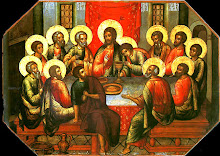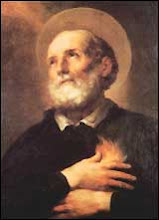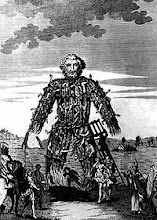
Monsignor Ronald A. Knox, writing and preaching to his war-time (WWII) congregation of school girls at Aldenham, produced for my money the most lucid explication of the Creed in print, The Creed in Slow Motion (readily available from Ave Maria Press, Notre Dame, IN).
Chapter by chapter, Knox elucidates bite-sized portions of the Creed in a manner that one reviewer says exhibited "a freedom from ecclesial decorum which is sometimes startling, yet always with a purpose;" namely, to show how the age-old faith resonates with our contemporary experiences.
So, my purpose now is to display Knox's superlative grasp of the Catholic faith in a series of posts in which I will, gentle reader, give you in its entirety chapter IX, "He Suffered." It is apropos for this season of Lent, and, in a few short pages, it brings to us the meaning and purpose not only of our Lord's salvific suffering, but the meaning and purpose of our own suffering in this mortal plane of temporal existence. I hope you will find it as important as I have.
By the way, as friend Gil Bailie notes, good authors always create their own precursors. I lay no claim to being a "good author," but I will say that Knox here gives the foundation for my own book, A Little Guide for Your Last Days that was written, submitted, and published long before I laid eyes on Knox's book.
And so I begin presenting to you, "He Suffered - Part 1, excerpted from The Creed in Slow Motion."
I EXPECT SOME of your will be wanting to complain that I've only given you half a clause out of the Credo there, instead of a whole clause. When you say the Credo, you say, "Sufton Plntius Pilate," and that's that. But, you see, quite apart from the question when or how our Lord suffered, it is important to get it into our heads that he did suffer. Go back for a moment to what you rememeber of the Gospels, and tell me what evidence we have, earlier than his agony in the garden of Gethsemani, to tell us that our Lord did suffer? It's not so easy, is it? I think I'm right in saying that there are only three occasions, before Gethsemani, on which we hear of our Lord as suffering any kind of bodily discomfort. When his temptation in the wilderness was over, we are told that he hungered. When he passed by the fig tree that had leaves but no fruit on it, we are told that he was hungry. And when he sat down by the well and talked to the woman of Samaria, we are told that he was tired after his journey. Elsewhere we hear of his being sorry about things - he wept over Jerusalem, for example, and over the grave of Lazarus - but except on those three occasions I don't think we ever hear that he suffered bodily discomfort - till Gethsemani. (Continues in Pt. 2)








No comments:
Post a Comment